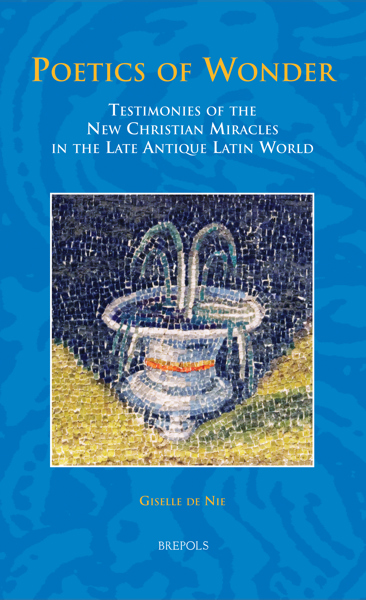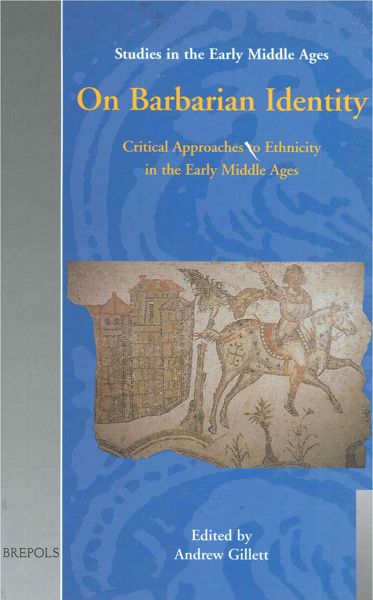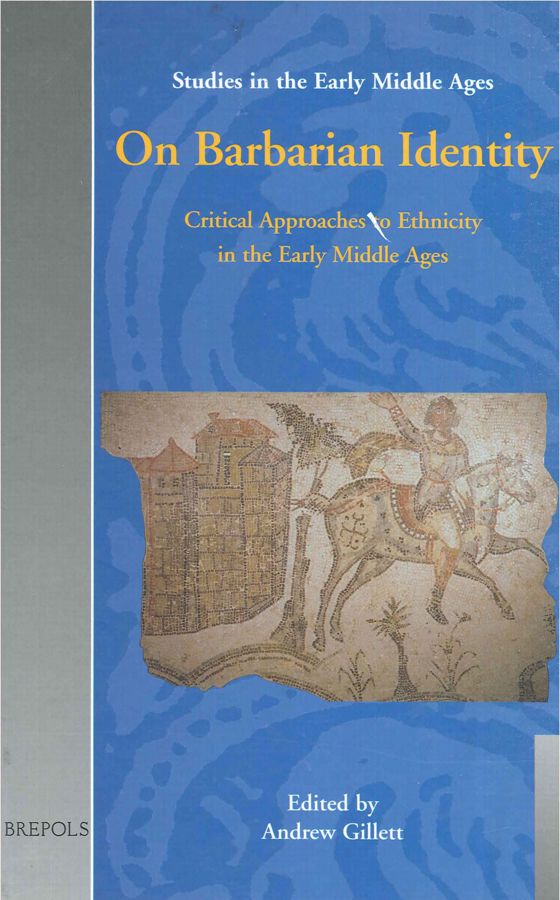
- Pages: xxiv + 265 p.
- Size:156 x 234 mm
- Illustrations:20 b/w
- Language(s):English
- Publication Year:2002
- € 75,00 EXCL. VAT RETAIL PRICE
- ISBN: 978-2-503-51168-9
- Hardback
- Available
- € 75,00 EXCL. VAT RETAIL PRICE
- ISBN: 978-2-503-53872-3
- E-book
- Available
The authors of this publication explore new ways to understand barbarians in the early Middle Ages, and to analyse the images of the period constructed by modern scholarship.
" To conclude, On Barbarian Identity is an unqualified success from a methodological perspective, and provides a strong basis for moving ahead in our efforts to try to understand how various groups of people were brought into being during the later Roman Empire and the early Middle Ages." (B.S. Bachrach in The International History Review, December 2003, p.870)
"This stimulating volume is bound to bring discussions of early medieval ethnogenesis to a broader English-speaking audience in the coming years." (B. Effros, in: The Medieval Review, 03.12.08)
Ethnicity has been central to medieval studies since the Goths, Franks, Alamanni and other barbarian settlers of the Roman empire were first seen as part of Germanic antiquity. Today, two paradigms dominate interpretation of barbarian Europe. In history, theories of how tribes formed ('ethnogenesis') assert the continuity of Germanic identities from prehistory through the Middle Ages, and see cultural rather than biological factors as the means of preserving these identities. In archaeology, the 'culture history' approach has long claimed to be able to trace movements of peoples not attested in the historical record, by identifying ethnically-specific material goods. The papers in this volume challenge the concepts and methodologies of these two models. The authors explore new ways to understand barbarians in the early Middle Ages, and to analyse the images of the period constructed by modern scholarship. Two responses, one by a leading exponent of the 'ethnogenesis' approach, the other by a leading critic, continue this important debate.
Introduction: Ethnicity, History, and Methodology - Andrew Gillett
Does the Distant Past Impinge on the Invasion Age Germans? - Walter Goffart
Reinhard Wenskus on ‘Ethnogenesis’, Ethnicity, and the Origin of the Franks - Alexander Callander Murray
Nation versus Army: A Necessary Contrast? - Michael Kulikowski
Was Ethnicity Politicized in the Earliest Medieval Kingdoms? - Andrew Gillett
Visions of National Greatness: Medieval Images, Ethnicity, and Nationalism in Finland, 1905–1945 - Derek Fewster
Ethnic Identities as Constructions of Archaeology: The Case of the Alamanni - Sebastian Brather
Volkstum as Paradigm: Germanic People and Gallo-Romans in Early Medieval Archaeology since the 1930s - Hubert Fehr
From Kossinna to Bromley: Ethnogenesis in Slavic Archaeology - Florin Curta
Ethnicity, Theory, and Tradition: A Response - Walter Pohl
Ethnogenesis: The Tyranny of a Concept - Charles R. Bowlus




